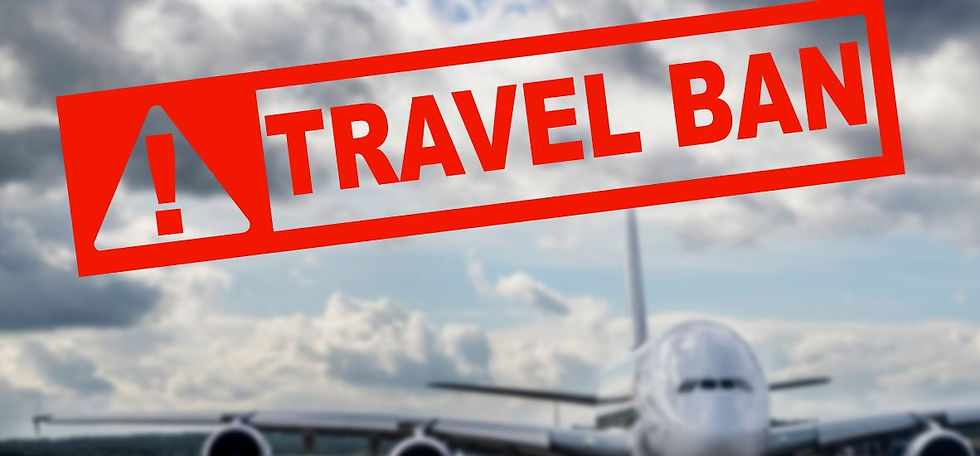The Process of an R-1 Religious Worker Visa in the USA
- Patricia Elizee

- Jun 11, 2021
- 4 min read
Updated: Jun 15, 2021
By: Patricia Elizee, Esq.

The R-1 Visa is a Non-Immigrant Visa that allows religious employees to work as a minister or other religious occupation in the United States for up to 5 years. A standard R-1 visa is good for up to 30 months. You can apply for a visa extension if you need to prolong your stay. If accepted, the extension will let you to stay in the United States for an additional 30 months. The R-1 visa is valid for a maximum of 60 months (5 years) . If you wish to return to the United States, you can only receive one extension, after which you must return home and redo the visa procedure.
Firstly, the U.S. Immigration Authorities defines a religion by:
· A congregation that worships in a similar manner.
· A group of people who share a common faith -A group of people who conduct comparable rituals, rites, and ceremonies
· An organization that follows a common code of discipline, behavior, and doctrine.
· An organization with a religious mission.
· A group that has a common place of worship.
In order to qualify for the R-1 Visa you must be a member of the same religious denomination as the religious organization you plan to work for in the United States for at least 2 years before your employer files a petition on your behalf.
There are different types of religious workers:
1. Minister- An ordained minister is fully permitted to lead religious worship and fulfill tasks normally undertaken by the denomination's authorized clergy. Lay preachers and others who are not allowed to execute such activities are not included in the definition.
2. Religious Vocation- Nuns, monks, religious brothers and sisters who have made a formal lifetime commitment to a religious way of life by vows, investitures, or other rituals.
3. Religious occupation- Doing activities that are largely related to a traditional religious role that is regarded as a religious occupation within the denomination and that primarily relates to and plainly includes instilling or carrying out the denomination's religious teachings and beliefs. Janitors, maintenance workers, clerks, and money raisers are examples of vocations that would not qualify. The position must be religiously significant.
Employers or religious organizations in the United States must file a Form I-129 Nonimmigrant Worker Petition or a I-360 Special Immigrant Petition. The attestation (which is included in the I-129 and I-360 forms) verifies the validity and denomination of the religious organization, as well as the ability to pay the religious worker, the religious worker's qualification, the religious worker's compensation (whether salaried or non-salaried), and the nature of the position offered. In the case of an R-1, you can choose to request premium processing. Premium processing speeds up the visa processing time which USCIS guarantees within 15 calendar days. This is where USCIS may approve, refuse, or issue a request for addition evidence. Without premium processing, the total time for R-1 Visa might take 8 to 9 months to process. Petitioners filing Form I-129 for H-2B or R-1 Nonimmigrant Status will pay a premium processing cost of $1,500. If you wish to file an R-1 and choose not to pay for premium processing, you must plan ahead of time.
Through the Administrative Site Visit and Verification Program, USCIS conducts pre-approval compliance evaluations on all petitioners for religious personnel (ASVVP). To be granted, the petition must pass a pre-approval compliance examination, which may include an on-site inspection. The following items may be included in the examination: A tour of the facilities of the organization as well as the company's headquarters. The organization's officials are interviewed. Only if the petitioner/non-profit religious organization has previously sponsored an R-1 or Special Religious Immigrant Visa Petition and has been visited by USCIS would be granted the premium processing request for the R-1 visa.
Documents that need to be provided are:
· Proof of tax-exempt status of the religious organization
· Evidence of your admission into the program
· Evidence of your needed tasks and obligations -Proof of the religious organization's established program for missionary activity
· Proof that the organization will pay you, such as copies bank statements
· A copy of any certificate, ordination, or schooling requirement issued by your denomination.
Additionally, R-2 Visas are for spouses and children of R-1 nonimmigrants. Unless they have their own work permits, they are not allowed to work. R-2 visas are awarded for the same duration of time and are subject to the same tie limitations as R-1 Visas, regardless of how long the spouse and children have been in R-2 status in the United States.
R-2 Visa holders are not authorized to work in the United States. If you want to work in the United States, you'll need to apply for a new visa, or you may petition to modify your status once you've arrived. You do not need to apply for an F-1 Student visa to attend any full or part-time institution. From a R Visa to a green card, there is no straight route. One of the requirements for R Visas is that they return to their home country at the end of their stay.


















Comments